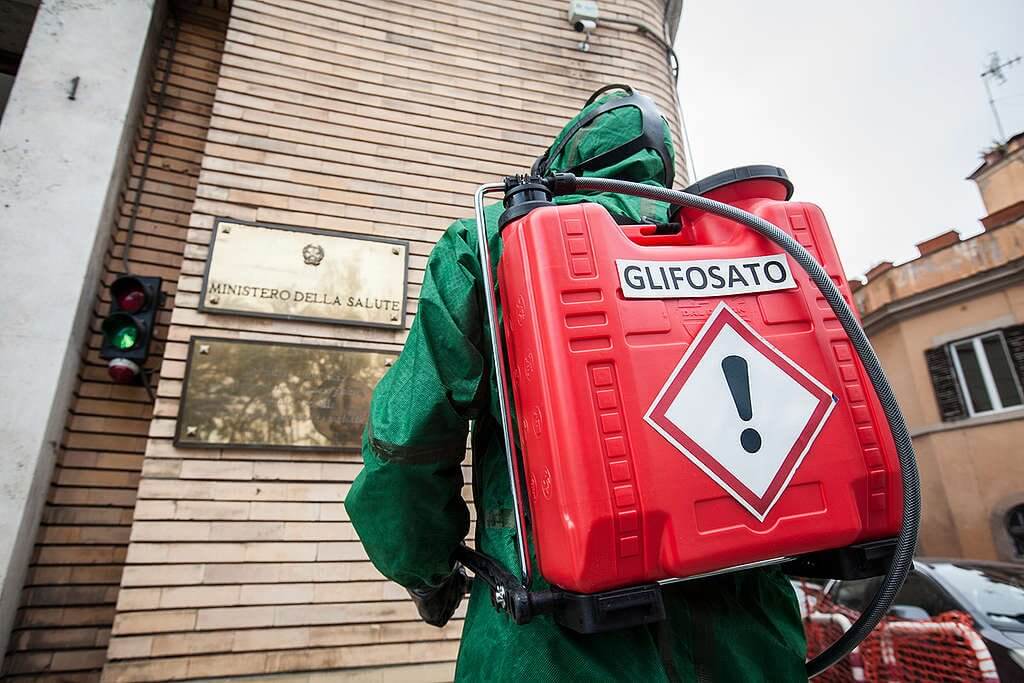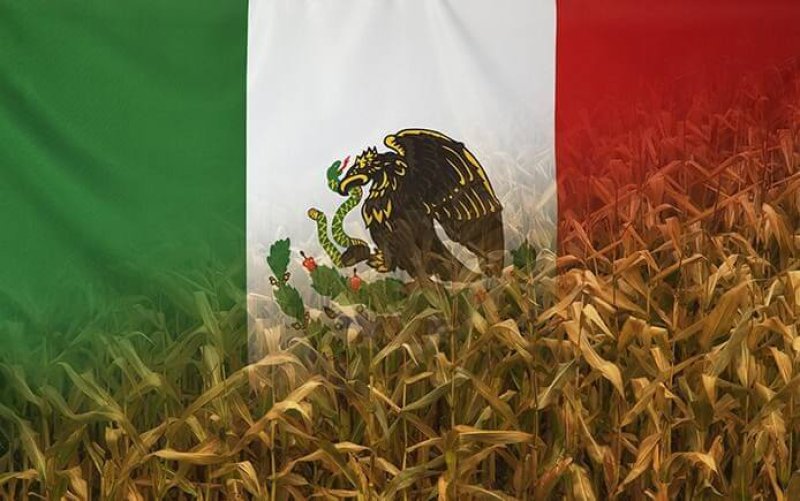The Mexican government is still on track to ban completely by 2024 the use of glyphosate which is paired with transgenic corn. GMO corn is already banned under a separate decree.
The ban followed a Presidential decree issued last year. Even though it’s not yet in place, this decision is already hurting farmers’ incomes. But there is a secondary, unintended consequence. While it was sold to the public as a measure to protect the environment, the future ban of glyphosate has prompted farmers to begin the transition, and many of them are turning to pirate, unregulated herbicides, which do far more damage to the environment than any available and approved herbicide, especially glyphosate which is known for its mild environmental impact.
As recently reported by the USDA Food and Agricultural Service, the pending restrictions are part of a wide-ranging government plan to block biotechnology innovation in the country. Mexico has not reported any official biotechnology food or feed products approvals since May 2018.
The aggressive official rejection of crop biotechnology has also thrown a cloud over one of the country’s great agricultural success stories. As I reported two years ago:
GM cotton was first introduced in Mexico in 1996 and has been widely adopted by growers. Thanks to its insect resistance (BT) and herbicide tolerance traits, the biotech crop efficiently controls lepidopteran pests and helps combat equally damaging weeds.
Widespread GM cotton cultivation over those 24 years dramatically slashed the amount of pesticide farmers had to utilize to safeguard their fields from insect attack. For comparison, consider that cotton cultivation in the 1970s required almost 20 insecticide applications from plant emergence to harvest. Following the introduction of GM cotton, applications dropped to 3.5 – 5 applications per growing season.
When GM cotton was first introduced, the average yield was three tons per hectare, which doubled to six tons in 2010 and further increased to eight tons per hectare in 2016.
It was a great environmental and economic success story. And it depended in on the use of glyphosate, which controlled weeds with very little environmental impact. But a lot of that progress has been undone, and the future looks grim. While GMO insect resistant Bt cotton is still grown by some farmers, the current government, hostile to science, and with the glyphosate ban soon to be instituted, has rejected or delayed all permit applications.
Since this measure was announced the USDA reports 26 lawsuits in seven states filed by feed producers, seed companies and agricultural associations, imploring the government to let them use this herbicide in the Mexican fields.
Opening the door to an illegal market by banning a widely used herbicide
As reported by Cristian Garcia de Paz Executive Director of PROCCYT — a Mexican civil association dedicated to defending farmers’ voices — the glyphosate ban is contradictory to the country’s goal to reach self-sufficiency. Without use of the weedkiller–which has been determined to be safe for humans and the environment after reviews by 19 independent global research and regulatory agencies — there is no effective alternative to substitute. Without this herbicide, Mexico crop losses of up to 40% are predicted, making it impossible to reach self-sufficiency.
According to Cristian:
Glyphosate is a product that has been used for more than 30 years in agriculture and other applications, such as urban weed control, and has proven to be an effective tool, with an attractive cost-benefit for farmers, especially for its productivity, it is an input that is used in more than 30 crops in Mexico.
Current glyphosate imports reductions have depleted farmer reserves, causing yet another problem. What has the Mexican government proposed as an alternative to glyphosate? Machetes, which are not only labor intensive, but result in the release of carbon-polluting through tilling. Alternatively, glyphosate requires low or no tilling, a key factor in helping to address climate change.

Considering that ridiculous alternative, the price of all herbicides has skyrocketed and a black market selling unapproved weedkillers has ballooned.
The presidential decree did not consider the unintended consequences. The authorities have done nothing to stop the proliferation of illegal, adulterated herbicides as well as the contraband and the commercialization of herbicides that do not have health permission to be used in the fields. That jeopardizes not only consumer and farmer health but also the environment and the market itself.
If the main reason to ban glyphosate was to protect the environment and the health, by taking this unilateral decision, undertaken without scientific evidence and a national strategy and funds to help to replace glyphosate, the collateral effects are boosting an illegal market controlled by organized crime.
Organized crime increases its profits
The bumbled glyphosate ban has sparked a booming black market in unapproved agricultural chemicals. The National Citizen Observatory has calculated those illegal products in the national market now have a value of more than 4 billion pesos. As reported by national newspapers, the illegal supplies are not only limited to fake herbicides but also illegal seeds: “As a way to face the shortage of seeds — mostly GM cotton seeds — the use of illegal products is being strengthened, a black market has been generated and is growing rapidly in Mexico representing a serious problem with strong environmental and economic effects”

This further emboldens organized crime. It’s well known that the black market and illegal activities in different sectors in Mexico are generally connected to larger criminal organizations connected to drug cartels that usually provide financial resources as well as protection from other organizations and the authorities.
Juan Cortina president of the National Agricultural Council, summarized the developing crisis this way:
Insecurity is hitting all Mexicans; it is not exclusive to the agricultural sector. There are states of the Mexican Republic with greater problems. It is an issue that raises costs and that we must deal with every day, and it is getting worse …. It is an issue that worries us and is affecting us.
2022 is shaping up as a challenging year for Mexican farmers
Juan Cortina president of the National Agricultural Council recently declared that broken public policy is one of the biggest challenges in Mexico. Ideology is taking precedence science. As for the herbicide shortage, “glyphosate is needed in many parts of the country and currently it’s three times its normal price because they are not giving the permits.”
What is the Mexican government currently doing? As part of the measures in place to gradually reduce the use of glyphosate by 2024, the National Council of Science and Technology has recommended reducing by 50 percent the imports of glyphosate used extensively in the Mexican countryside. This applies, even though glyphosate-based herbicides used on more than 30 crops in the country to eradicate weeds.
Critics maintain that the National Council of Science is not basing its recommendations on science. And there are no available alternatives to replace glyphosate. The dramatic falloff in production, coming at a time of rising global prices, is already hitting Mexican consumers very hard. many of whom do not have enough resources to afford a balanced diet.
It’s worth mentioning that glyphosate in Mexico, is not only used in the fields but also is also applied to the sides of highways to keep the asphalt layer clean of weeds. There are no replacement chemicals to address that need.
The romantic idea to have a glyphosate-free country sold by environmental NGO activist and embraced by the current Mexican government is already proving to be a massive sustainability and economic disaster.
Luis Ventura is a biologist with expertise in biotechnology, biosafety and science communication, born and raised in a small town near Mexico City. He is a Plant Genetic Resources International Platform Fellow at the Swedish University of Agricultural Sciences. Follow him on Twitter @luisventura































